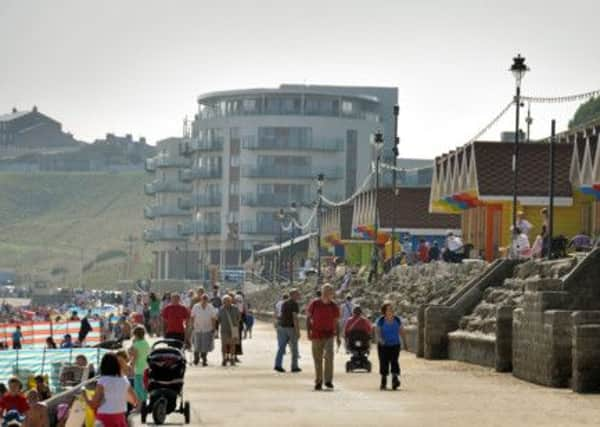Why our identity is about more than just ticking boxes


I’M checking my passport because I’m keen to see what it has down for my nationality. I can certainly remember that when I began filling in job application forms as a young man, I was told to put down “British” for my nationality and “England” for my country of birth. The passport backs this up. I am definitely British, it says. But am I?
A study by the BBC has turned the whole question of our nationality on its head. Researchers looked at the results of the 2011 census, which asked people to reveal their national identity.
Advertisement
Hide AdAdvertisement
Hide AdThe results were perhaps surprising. Most people living in Yorkshire don’t regard themselves as British, it seems. Far more see themselves as English.
What’s the difference and does it matter? Britain, of course, includes Scotland and Wales. England is just England. At a time when both Scotland and Wales have devolved governments and Scotland could become independent altogether, it’s worth noting that the census might show that Britishness doesn’t mean much to a lot of people in Yorkshire either.
In Yorkshire, numbers of people ticking the “British” box on the form as opposed to “English,” were quite low with particular apathy towards Britishness recorded towards the coast. In Scarborough, just 13.5 per cent of people thought they were British and British alone. In Hull, it was even lower at 11.8 per cent. Yet in Kirklees it was 21.8 per cent and Yorkshire’s centre of Britishness turned out to be Bradford at 28 per cent.
Now contrast that with how many people ticked the English-only box. Nationally, 60 per cent of people in England described themselves as just English but in Yorkshire, the number rose far higher. In Scarborough it was 70.1 per cent, while the place in Yorkshire where English identity was felt the strongest was Barnsley, at 75.1 per cent.
Advertisement
Hide AdAdvertisement
Hide AdIn trying to draw conclusions, researchers noted that older people, people of white ethnicity and those of Christian faith were more likely to opt for English, while younger people of other ethnicity or faith were more tempted to say British. It shows an interesting difference in outlook.
The Home Office no doubt has legal guidelines drawn in concrete defining who qualifies as “British” but there’s a more important issue here. Some say nationality is where your roots are.
Others would go further and say it’s a personal question of the heart.
It’s about identity, of working out who you are, where you came from and where you belong. It’s something most of us need to know before we can function normally.
Advertisement
Hide AdAdvertisement
Hide AdMany experts have pondered the question of identity and many books have been written trying to unwrap what it means to be British or English, or Scottish or Welsh for that matter. A certain former Prime Minister got into trouble once for suggesting people from a certain central European country had something of a “national character” but some do believe there are characteristics that are linked with nationality.
According to Ian Bradley, author of Believing in Britain: The Spiritual Identity of Britishness, the shared values of Britishness include creativity, adaptability, openness, tolerance, liberty, fairness, decency, civic duty, patience, self control and magnanimity. There’s an idea of inclusiveness and embracing differences. Could this be why ethnic communities feel at home with calling themselves British?
So what about the English? Is an Englishman different to a Scotsman or a Welshman? There’s a temptation to delve into old joke books here but more serious studies have been carried out. Anthropologist Kate Fox has written a book called Watching the English: The Hidden Rules of English Behaviour. She says there are indeed some recognisable qualities of Englishness.
It’s not all good news, though. While English people apparently have a sense of fair play, courtesy, moderation and modesty, they are prone to embarrassment and social awkwardness, are reserved and obsessed with privacy, and are pessimistic and apt to moan. But the Englishman can count his sense of humour as a positive – just as well for many of those reading this now.
Advertisement
Hide AdAdvertisement
Hide AdSo, what about you? Are you British or English, or does that not include enough options? Perhaps census forms should give us a choice of not just those identities but also European on a wider scale – after all, we are part of the European Union – and perhaps on a more local scale, Yorkshirean or Yorkish, if there are such words. What would you have on your passport?